Key Takeaways
- Hybrid cats are a mix between domestic and wild cats, resulting in unique traits and behaviors.
- Bengal, Chausie, and Savannah cats are popular hybrid breeds with distinct characteristics.
- Owning a hybrid cat requires understanding their specific needs, including legal considerations.
- The F1 to F5 generational status influences the size and behavior of hybrid cats significantly.
- Choosing between adoption from a rescue or purchasing from a breeder involves ethical and practical considerations.
Understanding Hybrid Cat Breeds: Fact vs. Fiction
Hybrid cat breeds often capture the imagination of cat enthusiasts, with their exotic looks and intriguing ancestry. These cats are not just ordinary felines; they are the result of crossing domestic cats with wild feline species. This unique combination creates a cat that may exhibit both domestic and wild traits.
What Makes a Cat a Hybrid
To understand hybrid cats, it’s essential to know what defines them. A hybrid cat is produced by breeding a domestic cat with a wild feline species. For example, Bengals are bred from domestic cats and Asian leopard cats. This genetic mix leads to a unique blend of physical and behavioral traits.
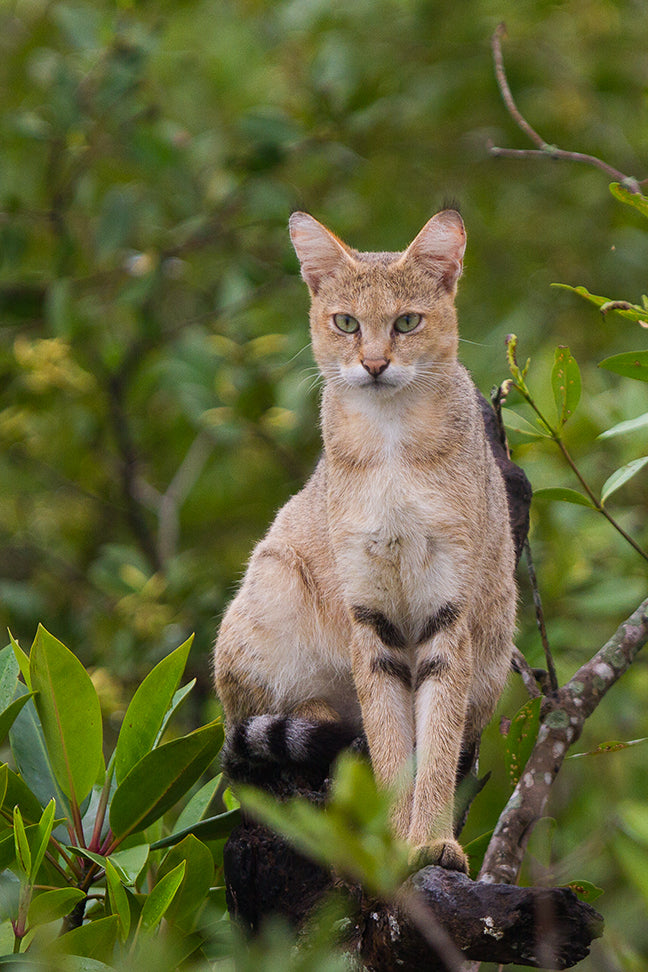
“Hybrid Cats: 3 Wild Cats Who Are …” from basepaws.com and used with no modifications.
Dispelling Myths About Hybrid Breeds
There’s a lot of misinformation about hybrid cats. Some people believe they are impossible to train or are inherently aggressive. However, with proper care and understanding, hybrid cats can make loving companions. They do require more attention and stimulation than typical domestic cats, but they are not unmanageable.
Another common myth is that hybrid cats are always illegal to own. While there are legal considerations, particularly with earlier generations like F1 and F2, many places allow the ownership of later generations. It’s crucial to research the laws in your area before bringing a hybrid cat home.
Reasons to Choose a Hybrid Cat
Hybrid cats are appealing for several reasons. First, their exotic appearance is a significant draw. They often have striking patterns and colors that set them apart from other cats. Their wild ancestry can also make them more active and playful, which can be a delight for those who enjoy interactive pets. For more information on different hybrid cat breeds, you can explore various options that might suit your lifestyle.
Besides their looks and energy, hybrid cats can form strong bonds with their owners. They tend to be intelligent and curious, which makes them engaging companions. If you are willing to invest time and effort into their care, hybrid cats can be incredibly rewarding pets.
“Hybrid cats are often misunderstood. With the right environment and care, they can thrive and be wonderful pets.” – Expert Cat Breeder
Reasons a Hybrid Cat May Not Be For You
Despite their allure, hybrid cats are not for everyone. Their wild ancestry means they may have higher energy levels and require more stimulation than typical domestic cats. If you lead a busy lifestyle or lack the time to engage with your pet, a hybrid cat might not be the best fit.
Comparing Bengal, Chausie, and Savannah Cats
Each hybrid breed has its own unique characteristics. Understanding these differences can help you decide which breed, if any, is right for you. Bengals, Chausies, and Savannahs are the most popular hybrid breeds, each with distinct traits.
Unique Traits of Bengal Cats
Bengal cats are known for their beautiful, leopard-like spots and sleek, muscular build. They are highly active and love to climb and explore their environment. Bengals are also very social and enjoy interacting with their human companions. If you’re interested in learning about another large and sociable breed, check out this guide on Maine Coon cats.
One thing to keep in mind is their intelligence. Bengals need mental stimulation to prevent boredom, which can lead to destructive behavior. Providing them with plenty of toys and activities can help channel their energy positively.
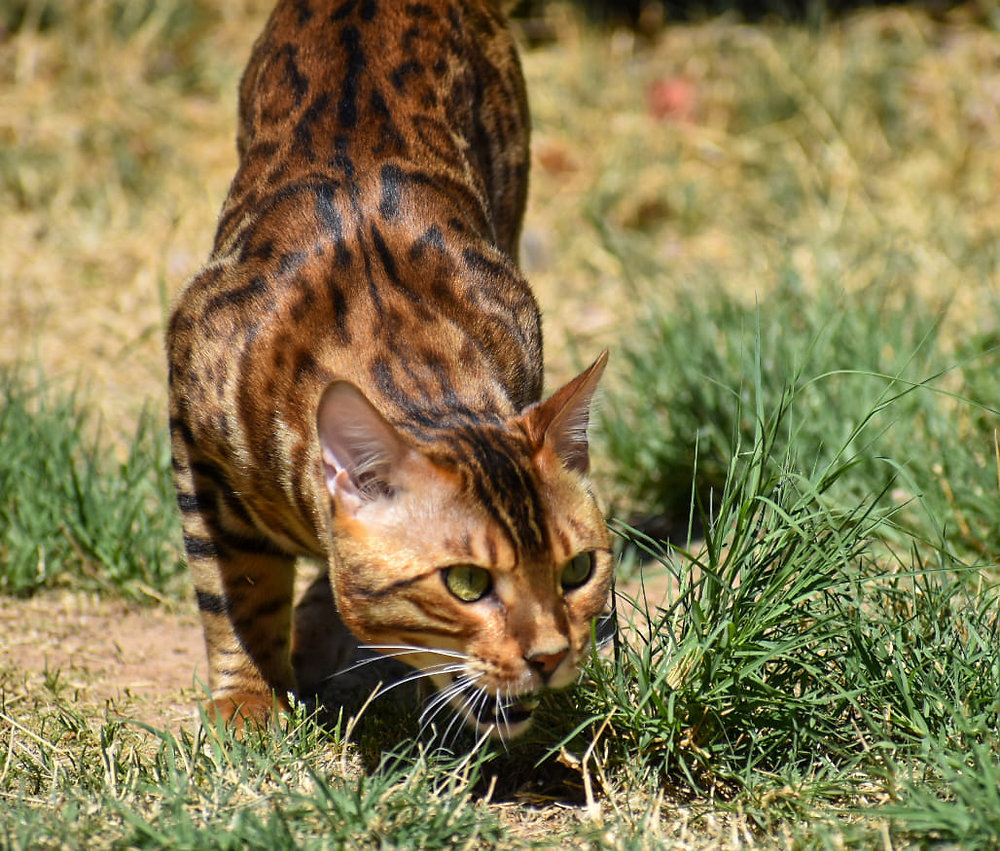
“The Exotic World of Bengal Cats” from www.divinuspridebengals.com and used with no modifications.
“Bengals are like little leopards in your home. They’re stunning to look at and keep you on your toes with their playful antics.” – Bengal Owner
Characteristics of Chausie Cats
Chausie cats are a hybrid between domestic cats and jungle cats. They are known for their tall, elegant stature and short, dense coat. Chausies are incredibly active and need ample space to run and play. For more information on these unique breeds, check out this guide on understanding and caring for hybrid cat breeds.
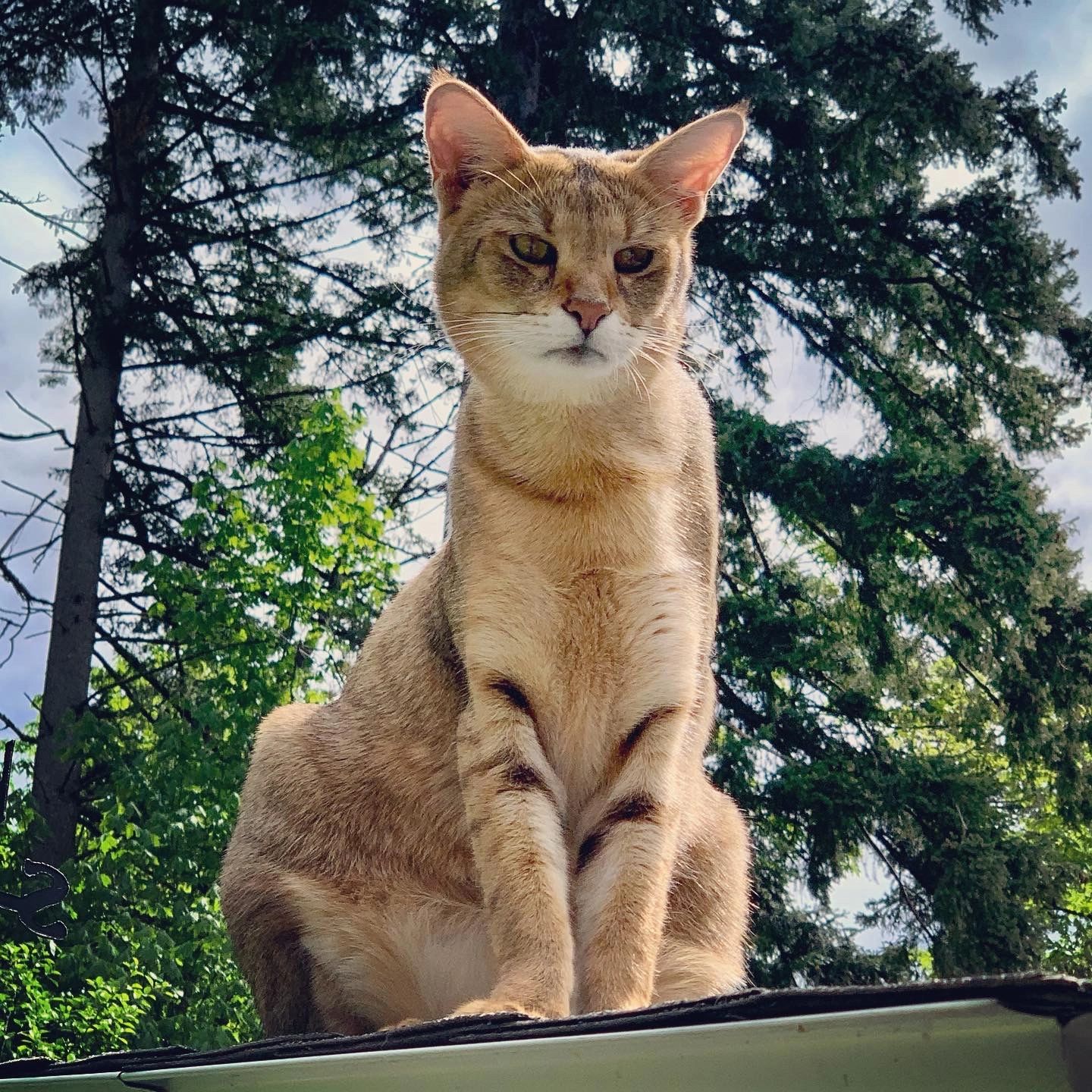
“Chausiecats” from chausiecats.com and used with no modifications.
What to Know About Savannah Cats
Savannah cats are a cross between domestic cats and servals. They are tall and slender, with striking spotted coats. Savannahs are known for their dog-like personalities and can even be trained to walk on a leash.
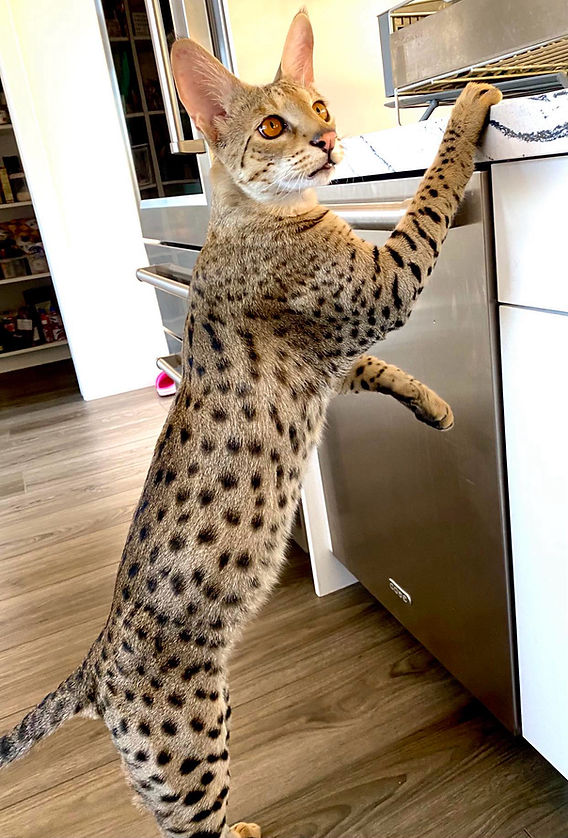
“Is a F2 Savannah Cat Right For Me?” from www.luxurysavannahs.com and used with no modifications.
These cats are highly intelligent and curious, requiring plenty of interaction and enrichment. They can be very social and enjoy spending time with their human family members.
Legal Considerations for Hybrid Cat Ownership
Owning a hybrid cat involves more than just understanding their unique needs and behaviors. It’s crucial to be aware of the legal aspects associated with these exotic pets. Laws vary widely depending on where you live, and compliance is necessary to ensure a smooth and lawful ownership experience.
Hybrid cats, especially those from earlier generations like F1 or F2, may face restrictions or require special permits in some regions. These regulations are often put in place to protect both the animals and the public. For those interested in adopting other unique pets, consider reading about the Hyacinth Macaw adoption guide for insights on cost, care, and personality.
- Check local laws regarding hybrid cat ownership before making a purchase.
- Be prepared to obtain necessary permits if required by your region.
- Consult with local animal control or a legal expert to ensure compliance.
Failure to adhere to legal requirements can result in fines or the confiscation of your pet. Therefore, it’s always better to be informed and proactive.
Regulations in Different Regions
The legal landscape for hybrid cats can be complex. Some states or countries have outright bans on certain hybrid generations, while others may allow them with restrictions. For example, California permits Bengals that are at least four generations removed from their wild ancestors, while New York City bans all hybrid cats.
Understanding these regional differences is key. Research the specific regulations in your area to ensure you’re in compliance with local laws. For example, if you’re considering adopting a unique pet, like a Hahn’s Red-Shouldered Macaw, it’s important to know the legal requirements in your region.
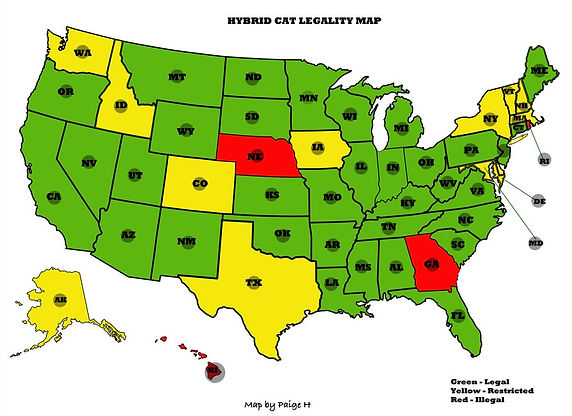
“Legality | Coachella Kittens” from www.savannahsofcoachella.com and used with no modifications.
Permits and Licensing Requirements
In regions where hybrid cats are allowed, you might still need to obtain a special permit or license. This process can involve providing proof of the cat’s generation, veterinary health checks, and sometimes a fee.
Here’s what you might need to do:
- Submit an application for a hybrid cat permit.
- Provide documentation of the cat’s lineage and health status.
- Pay any associated fees for permits or licenses.
Staying informed and organized can make this process much smoother. Always keep a copy of your permit handy in case you need to present it to authorities.
Understanding Local Laws
Beyond permits and regulations, understanding local laws is vital. Some areas may have additional requirements, such as mandatory microchipping or specific housing standards for hybrid cats. Knowing these details helps ensure your pet’s safety and well-being.
The Impact of Generations: F1 to F5
The generational status of a hybrid cat, often labeled as F1 through F5, significantly influences their characteristics. This classification indicates how many generations a cat is removed from its wild ancestor, affecting both its physical size and behavior.
Earlier generations (F1 and F2) tend to retain more wild traits, which can include larger size and more pronounced wild behaviors. Conversely, later generations (F3 to F5) are generally more domesticated and easier to manage as pets.
How Generations Affect Size
Hybrid cats from earlier generations are typically larger due to their closer genetic ties to their wild ancestors. For instance, an F1 Bengal or Savannah may be noticeably bigger than a domestic cat. This size difference can impact their dietary needs and the space they require.
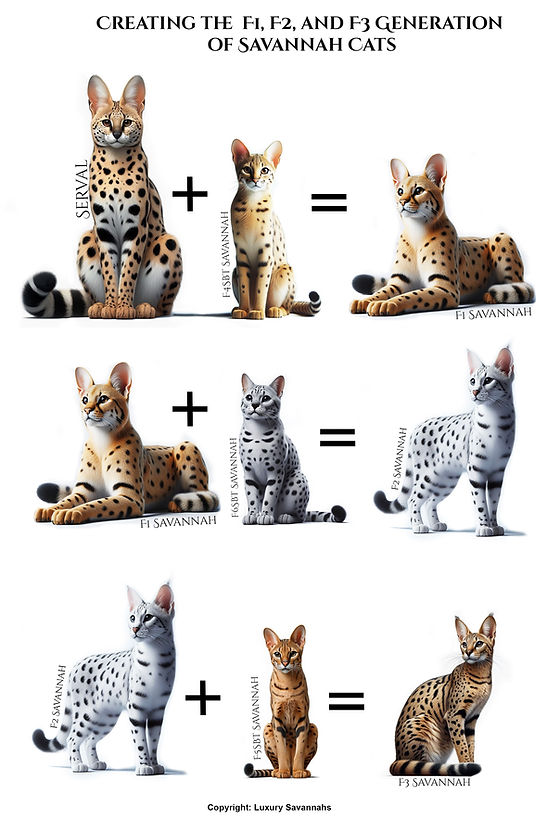
“CODES | LUXURY SAVANNAHS” from www.luxurysavannahs.com and used with no modifications.
Behavioral Differences by Generation
Behavior is another aspect heavily influenced by a cat’s generational status. F1 and F2 cats may exhibit more wild behaviors such as higher energy levels, greater curiosity, and sometimes a stronger prey drive. These traits require owners to provide more enrichment and training.
Selecting the Right Generation
Choosing the right generation for your household depends on your lifestyle and experience with cats. If you have experience with high-energy pets and can provide plenty of interaction, an F1 or F2 might suit you. However, if you prefer a more relaxed pet, an F3 to F5 could be a better fit.
Pros and Cons of Hybrid Cats as House Pets
Hybrid cats can make wonderful house pets, but they come with their own set of challenges. Understanding the pros and cons can help you decide if a hybrid cat is the right choice for your family.
How Does Filial Generations Affect Behavior
The filial generation of a hybrid cat can greatly affect its behavior. For example, an F1 cat might be more independent and less affectionate compared to an F4 or F5. This is due to the influence of their wild ancestry, which diminishes with each successive generation.
It’s important to consider what level of wild behavior you are comfortable with in your home. Some people thrive with the challenge, while others might find it overwhelming.
Most importantly, be honest with yourself about your ability to meet the needs of a more demanding pet. For more information on these unique breeds, explore this guide to hybrid cat breeds.

“Should You Adopt a Hybrid Cat …” from www.youtube.com and used with no modifications.
Advantages of Hybrid Cats
Hybrid cats offer several advantages as pets, and if you’re considering adopting a large and majestic breed, you might want to explore options like the Maine Coon cat.
- Unique and exotic appearance.
- High intelligence and playful nature.
- Strong bonds with their human companions.
These traits make them a joy for those who are prepared to invest time and effort into their care.
Challenges in Hybrid Cat Ownership
- Higher energy levels requiring more stimulation.
- Potential for destructive behavior if bored.
- Legal and regulatory considerations.
Understanding these challenges is crucial for anyone considering a hybrid cat. They are not the right fit for every household, and it’s essential to weigh these factors carefully.
Besides that, hybrid cats can be more expensive to care for due to their specific dietary and enrichment needs.
However, for those who are willing to meet these challenges, hybrid cats can be incredibly rewarding companions.
Assessing Family Suitability
When considering a hybrid cat, assess your family’s suitability. Do you have young children or other pets? Hybrid cats can be social but may not always be the best fit for households with very young kids or small animals.
Consider your family’s activity level and schedule. Hybrid cats thrive in environments where they receive plenty of attention and interaction. If your family can provide this, a hybrid cat might be a perfect addition to your home.
Rescue Versus Breeder: Making the Right Choice
Deciding between adopting a hybrid cat from a rescue or purchasing one from a breeder is a significant choice. Both options have their benefits and challenges, and understanding these can guide you in making the best decision for your situation.
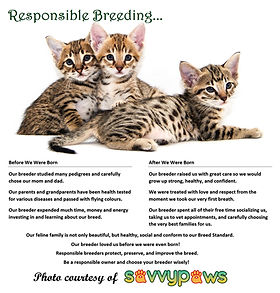
“Savannah Cat Scams” from www.savvy-paws.com and used with no modifications.
Benefits of Adopting from a Rescue
Adopting from a rescue can be a rewarding experience. Many hybrid cats in rescues are there because their previous owners were unprepared for the commitment required. By adopting, you give these cats a second chance at a loving home.
Rescue organizations often provide behavioral assessments and ensure the cats are healthy before adoption. This can give you a clearer picture of what to expect and help match you with a cat that suits your lifestyle.
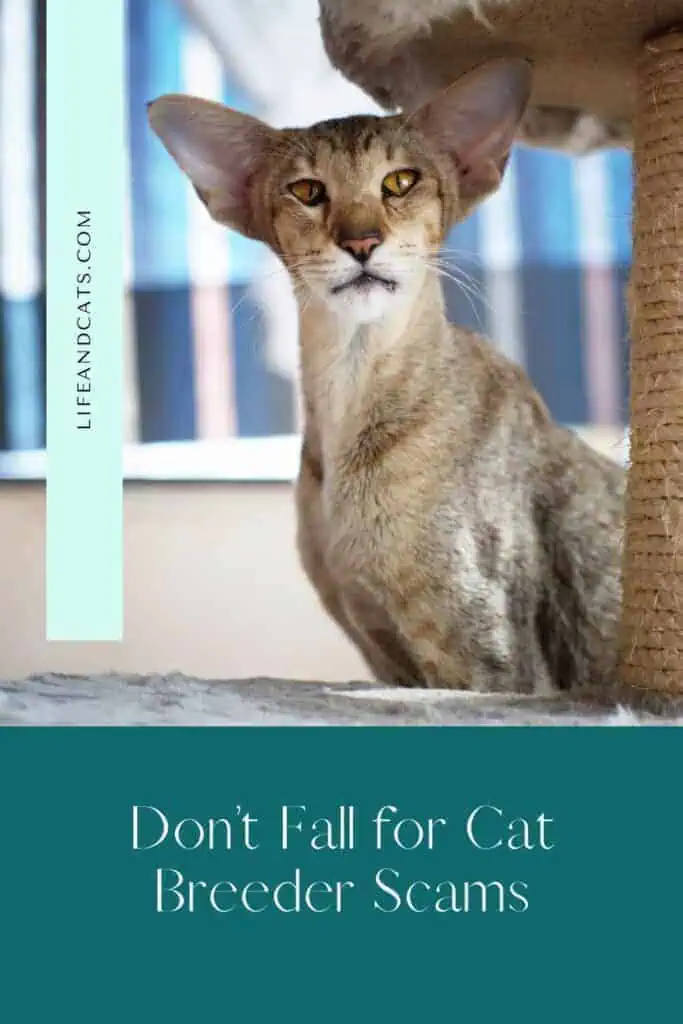
“Don’t Fall for Cat Breeder Scams” from lifeandcats.com and used with no modifications.
How To Find a Reputable Breeder and Avoid Scams or Bad Breeders
When opting to purchase from a breeder, finding a reputable one is crucial. A good breeder will prioritize the health and well-being of their cats over profit. They will provide detailed information about the cat’s lineage and health records.
To avoid scams, visit the breeder in person, ask for references, and ensure they are registered with a recognized cat breeding association. Be wary of breeders who are reluctant to provide information or allow visits.

“Savannah Cat Scams” from www.luxurysavannahs.com and used with no modifications.
Ethical Considerations in Adoption and Purchase
Ethical considerations should play a role in your decision. Supporting ethical breeding practices helps promote the health and welfare of hybrid cats. Similarly, adopting from a rescue can help reduce the number of homeless cats and discourage irresponsible breeding.
Consider what aligns with your values and what you are comfortable supporting. Whether adopting or purchasing, ensure your choice contributes positively to the welfare of hybrid cats.
Concluding Thoughts on Hybrid Cat Ownership
Owning a hybrid cat can be an enriching experience, but it requires a commitment to understanding and meeting their unique needs. These cats offer the allure of the wild, coupled with the companionship of a pet, making them an exciting choice for the right owner.
Balancing Exotic Appeal with Practical Needs
The exotic appeal of hybrid cats is undeniable. Their striking looks and vibrant personalities are captivating. However, this appeal must be balanced with practical considerations, such as their care requirements and legal implications.
Ensure you have the resources and willingness to meet these needs before committing to a hybrid cat.
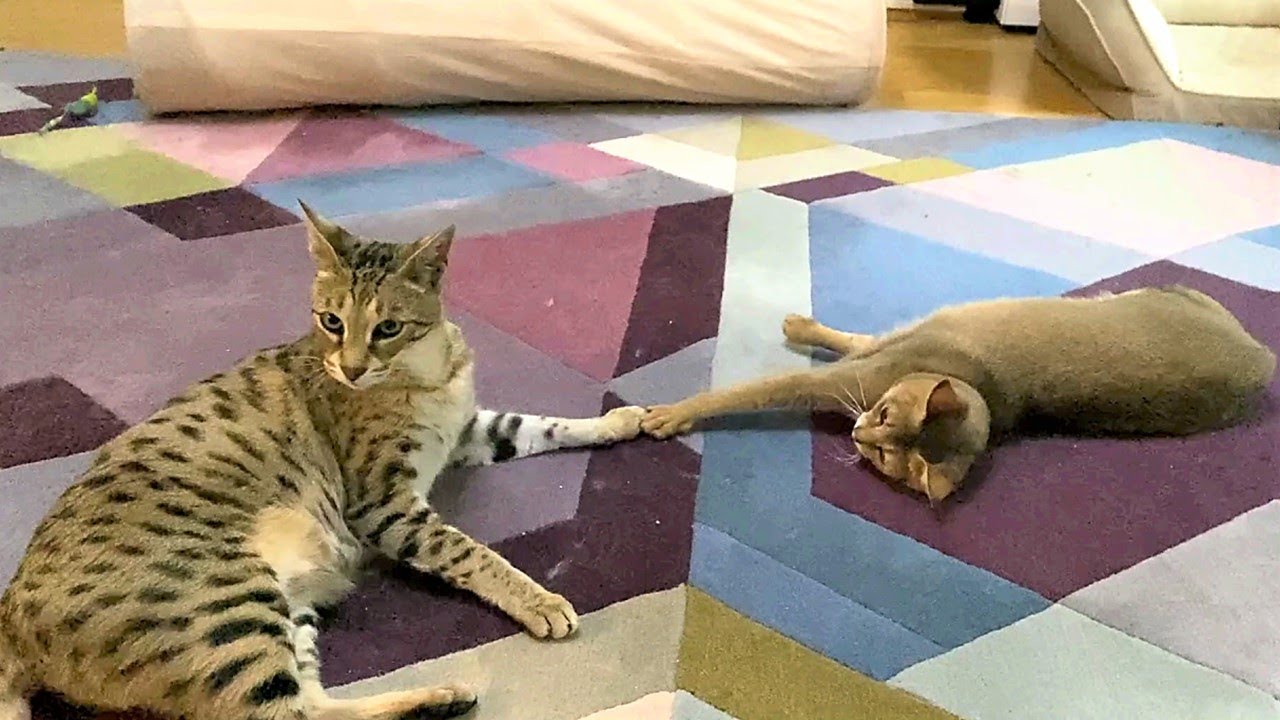
“Savannah and Chausie cat …” from www.youtube.com and used with no modifications.
Key Considerations Before Committing
“Before bringing a hybrid cat home, consider your ability to provide for their physical and mental needs. These cats are not low-maintenance pets.” – Animal Behaviorist
Think about the time, space, and financial resources required. Hybrid cats can be demanding, and ensuring you are prepared will lead to a more fulfilling relationship.
Most importantly, ensure your decision aligns with your lifestyle and that of your family.
Frequently Asked Questions (FAQ)
Hybrid cat ownership comes with many questions. Here are some frequently asked ones to help guide you in your journey.
“Understanding the nuances of hybrid cat ownership is key to a successful and rewarding experience.” – Feline Expert
Are hybrid cats harder to train than domestic cats?
Hybrid cats can be more challenging to train due to their intelligence and wild instincts. They require consistent and patient training methods. Positive reinforcement and interactive play are effective strategies.
What do I need to know about hybrid cat grooming?
Grooming needs vary by breed. Bengals, for instance, have short coats that require minimal grooming, while other hybrids might need more attention. Regular brushing and nail trimming are essential for maintaining their health and appearance.
Can hybrid cats live with other pets?
Hybrid cats can coexist with other pets, but it depends on their individual temperament and the nature of the other animals. Early socialization and gradual introductions are key to successful integration. For more insights on these unique breeds, explore hybrid cat breeds.
Consider the following tips for introducing hybrid cats to other pets:
- Start with short, supervised interactions.
- Provide separate spaces for each pet initially.
- Monitor for signs of stress or aggression.
With patience and careful management, many hybrid cats can live harmoniously with other pets.
How do I find legal information about owning a hybrid cat in my state?
Contact your local animal control or wildlife department for information on hybrid cat ownership laws in your area. They can provide details on any permits required and specific regulations you must follow. For insights on adopting unique pets, consider reading about Hahn’s Red-Shouldered Macaw adoption as a comparison.
Additionally, consulting with a lawyer familiar with animal law can offer clarity and ensure you are compliant with all legal requirements.
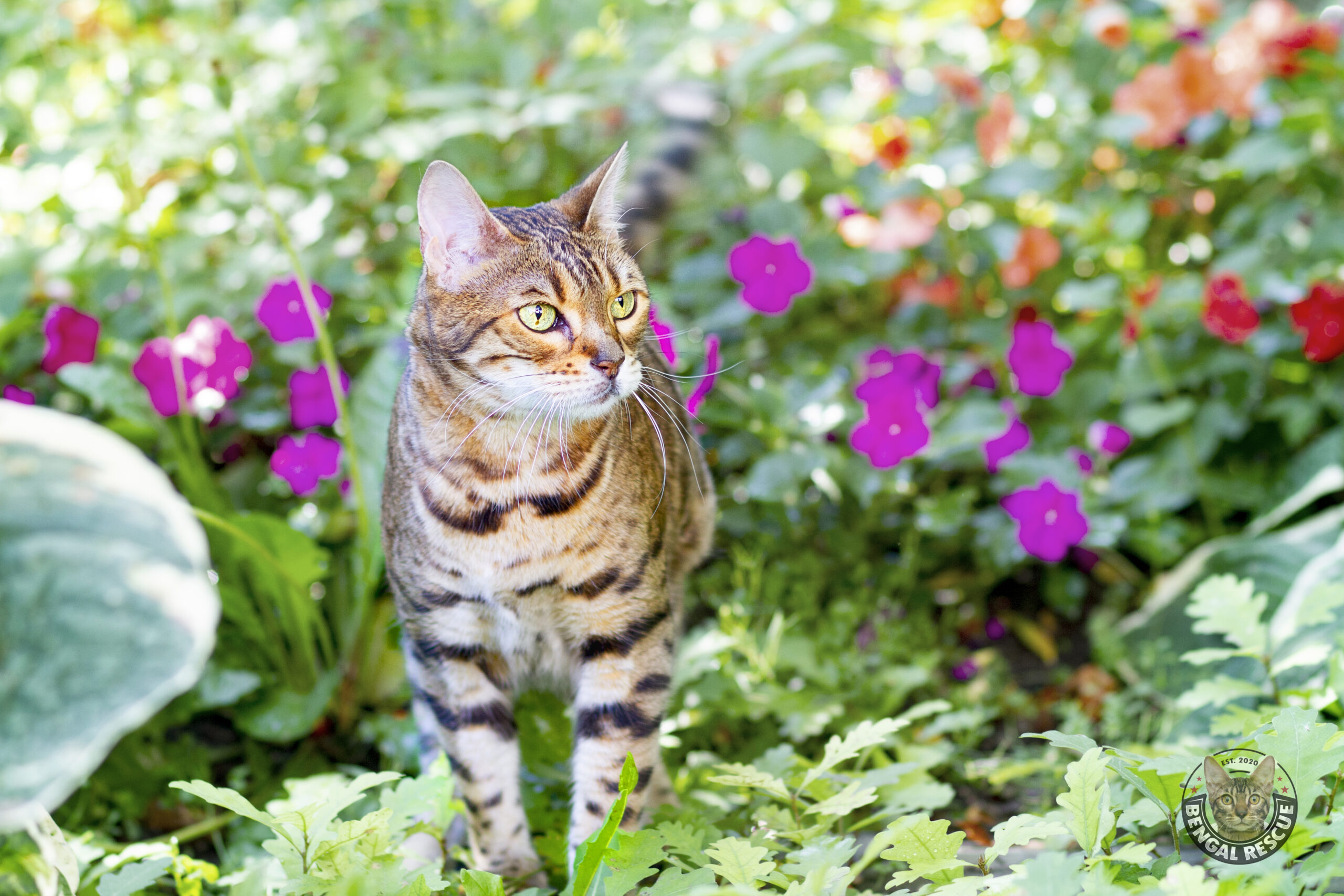
“Adopting Your First Bengal? – Bengal Rescue” from bengalrescue.org and used with no modifications.
What steps can I take to ensure my hybrid cat stays healthy mentally and physically?
Ensuring the health of your hybrid cat involves providing a balanced diet, regular veterinary checkups, and ample physical and mental stimulation.
Engage your cat with interactive toys, puzzles, and playtime to keep their minds active. Provide a variety of climbing structures and safe outdoor spaces for physical exercise.
Regularly consult with a veterinarian familiar with hybrid breeds to address any health concerns and keep vaccinations up to date.
By understanding and meeting their needs, you can ensure your hybrid cat leads a happy, healthy life.
Hybrid cat breeds, such as the Bengal, Chausie, and Savannah, are gaining popularity among pet enthusiasts. These breeds are known for their unique appearances and energetic personalities. However, potential owners should be aware of the pros and cons of adopting such exotic pets. Factors like cost, maintenance, and legalities can vary significantly, and understanding the influence of F1 to F5 generations on size and behavior is crucial. While these cats can make good house pets, it’s important to weigh the advantages and disadvantages carefully. Additionally, consider whether to adopt from a breed rescue or purchase from a reputable breeder.


